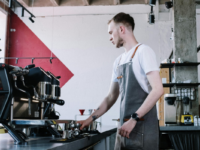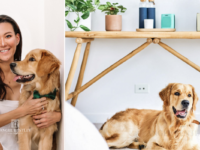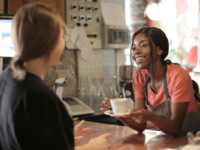Coming out of the COVID lockdowns, PR professional Chelsea Cucinotta knew of very few other business owners that she could seek out for advice, professional opportunities, or even just plain old mutual understanding.
That all changed when she sought out an office space to escape the confines of her apartment after many months in forced isolation. What started as an attempt to feel “more like a business owner”, as she put it, became a crucial connector to other entrepreneurs.
“I was in my own isolated world,” Cucinotta told ISB. “Going to [the coworking space] really opened me up to more business-minded people – it was great to finally have some people to talk to.”
When she plucked up the courage to talk to those around her and attend a few of the event’s social events and workshops, Cucinotta’s business thrived. She found herself surrounded by people to bounce ideas off, chat to, network with, and even to befriend outside the office.
“I love just being able to have those casual conversations, like when you’re making a tea in the kitchen,” she said.
The rise of business hubs
Cucinotta is just one of the many business owners around Australia who have found community in the form of a business hub: be that a coworking space, online networking group, or other gathering of entrepreneurial-minded people.
These spaces are an important support system and growth ecosystem for many business owners – particularly the 89 per cent who have five or less employees. They provide community, business opportunities, mentoring, and professional development and services to thousands of business owners who would otherwise find themselves in the same place as Cucinotta was.
Yesterday, ISB investigated the rise of sole-traders treating artificial intelligence like a co-founder; a person to bounce ideas off, take advice from, and even ask for a motivational pep talk. In the absence of a human, some entrepreneurs are using AI for mental and psychological support.
But while your LLM might sound like it gets you emotionally, it’s really just regurgitating words based on predictions, and will never be a replacement for a strong, supportive, human business community.
Regional connections
Business hubs are particularly important for those in more sparsely-populated regional areas. Over in Wagga Wagga, NSW, a new business hub is helping creative business owners in the riverina region – and it’s already led to a variety of opportunities for residents.
The Station Creative Workspace, delivered by Eastern Riverina Arts, has transformed Wagga Wagga’s old ambulance station into a thriving hub for artists, designers, entrepreneurs, and small businesses.
“We did a lot of consultation in the community about what people were looking for,” said Ashleigh Baxter, ERA executive director. “They were looking for spaces where they could network and collaborate and work together in a shared space, but they also wanted affordable work spaces.”
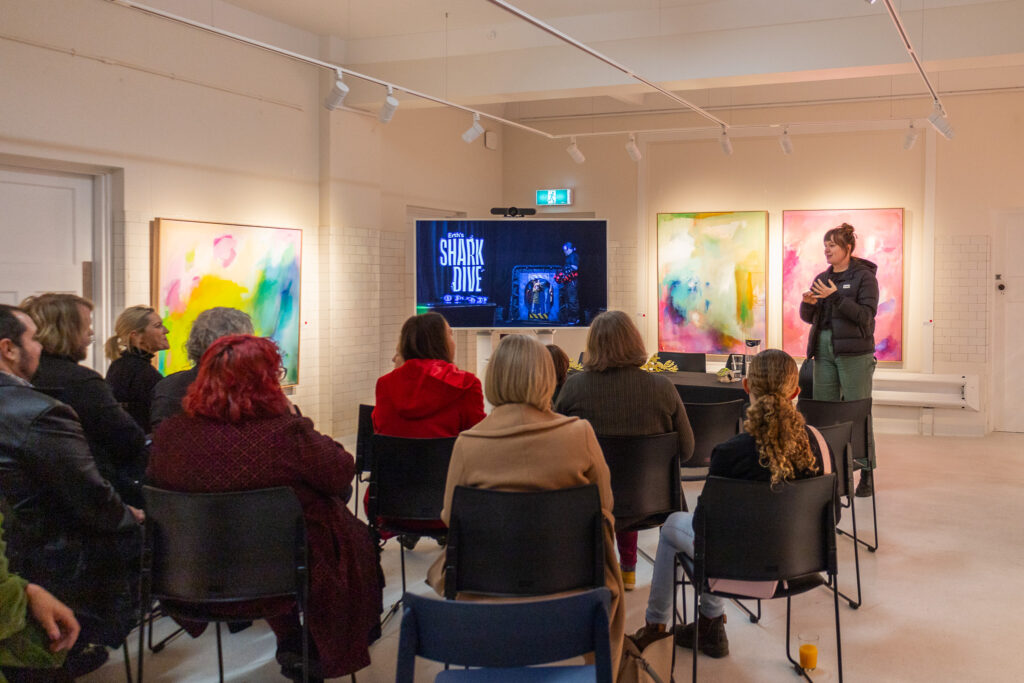
Speaking with ISB, Baxter said it’s been hugely beneficial for local creative business owners to connect with like-minded entrepreneurs. The hub has also run an incubator for those wishing to get a business off the ground for the first time.
“These people were looking to take that leap – move out of their home office or kitchen table and come into a workspace, fully commit to an idea, have a deadline and connect with others who are in the same boat,” Baxter described.
Local artist and graphic designer Rachel Viski is one of the Station’s long-term business tenants. She told ISB that the space has provided vital networking opportunities.
“The opportunities that you get from talking to people and building relationships is really advantageous,” she explained. “Getting work because you know someone… there’s all of those incidental things that help people.”
Viski has also taken advantage of the hub’s fast and reliable internet connection. Living on a large property, the business owner said she sometimes struggles to share important files or jump on business calls due to her poor connection.
For regional business owners like Viski, hubs like the Station are more than just a workspace – they’re a crucial source of connectivity.
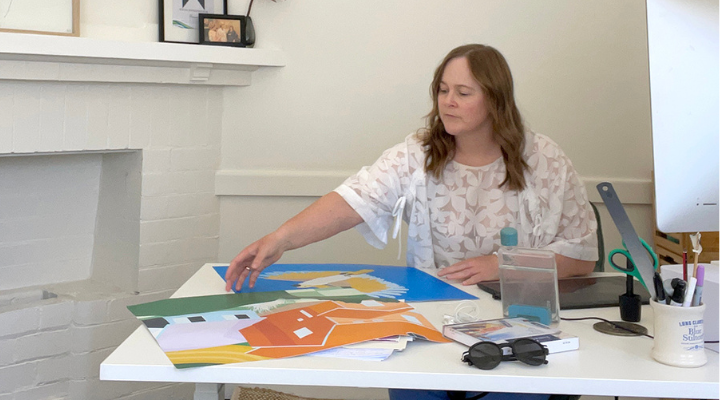
Spaces for women
Business owner Kelly Groves has been a long-time participator in networking events, but they haven’t always been conducive to growth or confidence.
“I went to a networking event and actually got laughed at [when] I introduced myself to a ‘suit’,” Groves told ISB. “They laughed in my face and sort of went ‘What do you mean you’re under thirty with two children and you’ve launched a business?’”
The incident made Groves realise there was a gap in the market for a wide-reaching, accessible business community focussed on women entrepreneurs. Fast forward three years and she now runs the Small Business Hub, a national initiative that provides accessible networking, strategic education, and business resources to female entrepreneurs.
Though the community provides social opportunities for women in business, Groves stressed that it’s far more than just a community – she also makes a point of giving members practical tools, like access to business support and industry experts.
“It’s all well and good to have besties in business, but how is that going to move the needle?” she said.
Running a business can be isolating, but hubs like these prove that it doesn’t need to. Stories like Cucinotta’s, Viski’s, and Groves’ prove how transformative these spaces can be for your business, social life, and self-confidence. For an entrepreneur, connection isn’t just a nice-to-have but a crucial business asset.








